WASHINGTON, DC | December 9th, 2013 - This week on BIZ+SOCIAL, we bring you the best from the New Global Citizen, Harvard Business Review, CFR, and more.
GLOBAL PRO BONO
Part III: PepsiCorps Lives Performance with Purpose in Brazil
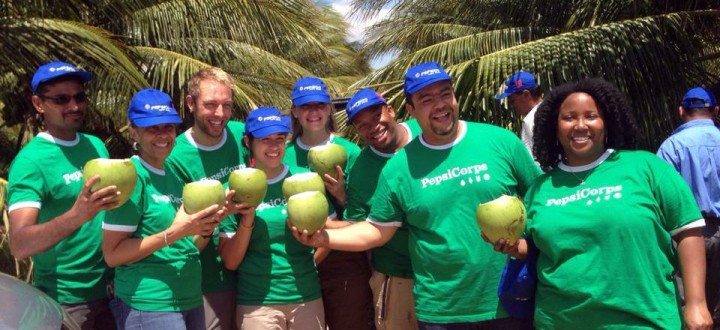 As my red-eye flight descends into Recife, Brazil, I look out the plane window in great anticipation, reminiscing of the past weekend’s conversations: “You’re going where?” “Afogados da Ingazeira.” “Never heard of it—is that near Sao Paolo?” “Not exactly.” Afogados is a six-hour drive from Recife, the fifth-largest city in Brazil. On the long drive there, I learn that Afogados means “drowned” in Portuguese. Many years ago, a couple tried to cross the Pajeú river during high tide and were washed away—a few days later their bodies were found. I immediately think “How sad!” Those who know Afogados see it as a symbol of pride and perseverance, yet also understand the sting of the name’s irony—the region has been struggling through a drought for the past three years. Each time I peek through the van’s curtains hung to keep out the heat, I am struck by the dryness of everything I see—leafless trees, dusty roads, a sea of brown. Read More…
As my red-eye flight descends into Recife, Brazil, I look out the plane window in great anticipation, reminiscing of the past weekend’s conversations: “You’re going where?” “Afogados da Ingazeira.” “Never heard of it—is that near Sao Paolo?” “Not exactly.” Afogados is a six-hour drive from Recife, the fifth-largest city in Brazil. On the long drive there, I learn that Afogados means “drowned” in Portuguese. Many years ago, a couple tried to cross the Pajeú river during high tide and were washed away—a few days later their bodies were found. I immediately think “How sad!” Those who know Afogados see it as a symbol of pride and perseverance, yet also understand the sting of the name’s irony—the region has been struggling through a drought for the past three years. Each time I peek through the van’s curtains hung to keep out the heat, I am struck by the dryness of everything I see—leafless trees, dusty roads, a sea of brown. Read More…
IMPACT & INNOVATION
Women Starting Up the Middle East
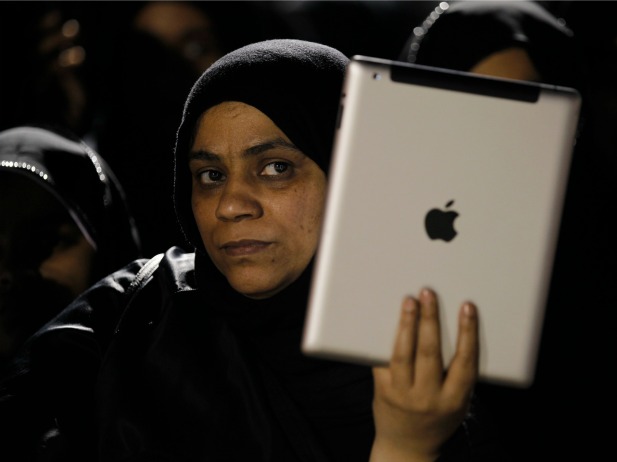 Every year, the World Economic Forum publishes its Global Gender Gap Report, tracking the world’s progress toward eliminating gender inequality. This year’s report, published in October, included some good news: in the nearly 140 countries counted, more than 90 percent of the divide in health and education has been closed. Still, there remains a huge gender gap in economic participation, particularly in the Middle East and North Africa (MENA) region, where men are 60 percent more economically empowered than women. In many MENA countries, including Algeria, Bahrain, Israel, Jordan, Kuwait, Lebanon, Oman, Qatar, and Saudi Arabia, there are higher tertiary education enrollment rates for women than for men. Read More…
Every year, the World Economic Forum publishes its Global Gender Gap Report, tracking the world’s progress toward eliminating gender inequality. This year’s report, published in October, included some good news: in the nearly 140 countries counted, more than 90 percent of the divide in health and education has been closed. Still, there remains a huge gender gap in economic participation, particularly in the Middle East and North Africa (MENA) region, where men are 60 percent more economically empowered than women. In many MENA countries, including Algeria, Bahrain, Israel, Jordan, Kuwait, Lebanon, Oman, Qatar, and Saudi Arabia, there are higher tertiary education enrollment rates for women than for men. Read More…
LEADERSHIP
Find Your Inner Mandela: A Tribute and Call to Action - Rosabeth Moss Kanter - Harvard Business Review
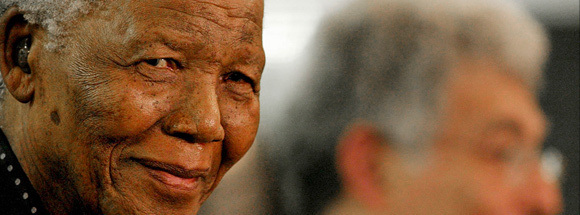 Don’t just mourn Nelson Mandela. Learn to be Nelson Mandela. He was the consummate turnaround leader. As the first democratically-elected president of post-apartheid South Africa, he took on and reversed the destructive symptoms of decline, a larger version of what goes on in any organization or community sliding downhill – suppression of information, group vs. group antagonisms, isolation and self-protection, passivity and hopelessness. He began the turnaround with messages of optimism and hope, new behaviors at the top (he even cut his own salary), and new institutions that created more communication and accountability. He created a new constitution with a participatory process that included everyone. He reached out to former enemies, visiting the widow of a particularly odious apartheid leader for tea. He ensured diversity and inclusion of all groups in his Cabinet. He brought foreign investment back to South Africa and empowered the disenfranchised black majority to take positions in those enterprises. Read More…
Don’t just mourn Nelson Mandela. Learn to be Nelson Mandela. He was the consummate turnaround leader. As the first democratically-elected president of post-apartheid South Africa, he took on and reversed the destructive symptoms of decline, a larger version of what goes on in any organization or community sliding downhill – suppression of information, group vs. group antagonisms, isolation and self-protection, passivity and hopelessness. He began the turnaround with messages of optimism and hope, new behaviors at the top (he even cut his own salary), and new institutions that created more communication and accountability. He created a new constitution with a participatory process that included everyone. He reached out to former enemies, visiting the widow of a particularly odious apartheid leader for tea. He ensured diversity and inclusion of all groups in his Cabinet. He brought foreign investment back to South Africa and empowered the disenfranchised black majority to take positions in those enterprises. Read More…
CITIZEN DIPLOMACY
Learning More, Knowing Less: A Search for Objectivity
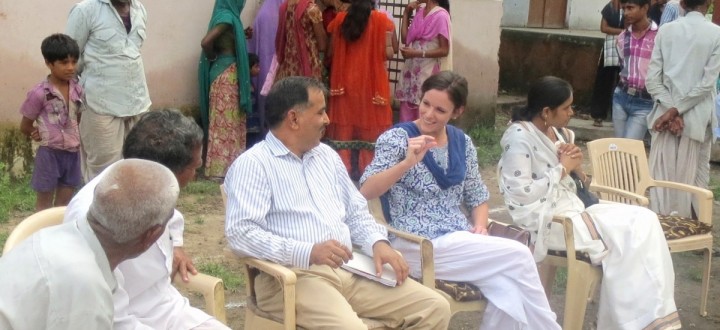 Suitcase still packed, shoes strewn across the floor, and phone switched off—I sink into my old, worn-in chair for a few moments of silent repose. “So, how did you like it?” I smile as I answer the familiar greeting, “I loved it.” I watch as my once-curious questioner, eagerly awaiting new stories and vicarious excitement, struggles to hide her growing perplexity and annoyance at the same, familiar answer. “How could she possibly love every place she goes?” the polite silence seems to imply. Equally miffed, I stifle the retort, “How could I not?” Over the years, my work has taken me to unimaginable destinations. From swarming metropolises to un-Googleable villages, it’s been the ultimate journey. Travel is the most informative of classrooms, bringing life and meaning to the theories, maps, stories, and pictures of my childhood. Read more…
Suitcase still packed, shoes strewn across the floor, and phone switched off—I sink into my old, worn-in chair for a few moments of silent repose. “So, how did you like it?” I smile as I answer the familiar greeting, “I loved it.” I watch as my once-curious questioner, eagerly awaiting new stories and vicarious excitement, struggles to hide her growing perplexity and annoyance at the same, familiar answer. “How could she possibly love every place she goes?” the polite silence seems to imply. Equally miffed, I stifle the retort, “How could I not?” Over the years, my work has taken me to unimaginable destinations. From swarming metropolises to un-Googleable villages, it’s been the ultimate journey. Travel is the most informative of classrooms, bringing life and meaning to the theories, maps, stories, and pictures of my childhood. Read more…
ENTERPRISE DEVELOPMENT
MBAs Without Borders: Lessons from Tamil Nadu, India
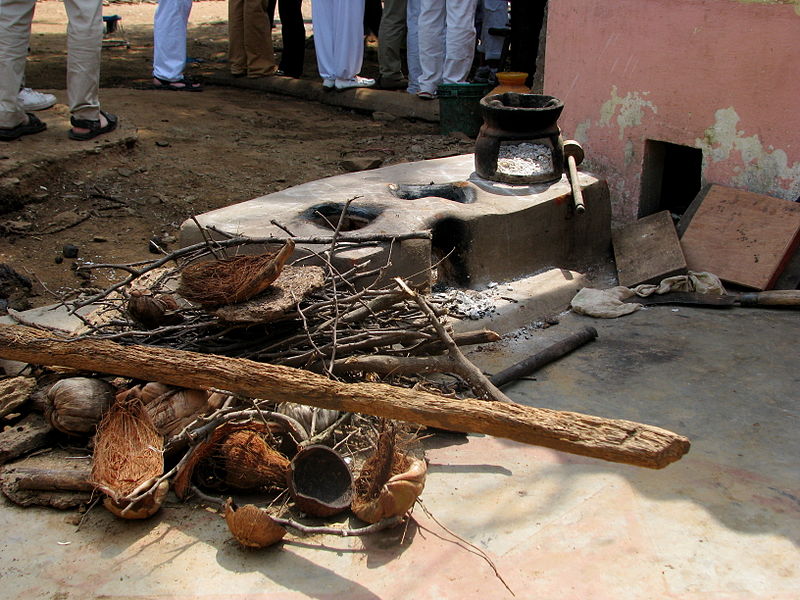 What does it feel like to smoke 400 cigarettes in one day*? How would it feel to work with an appliance that kills more people each year than HIV/AIDS, tuberculosis, and malaria combined? Welcome to a reality thatnearly half of humanity faces on a daily basis – the world of the traditional indoor cookstove. The damage from indoor cooking smoke is horrendous,” stated World Bank President Jim Yong Kim. “Each year, four million people die from exposure to smoke from these stoves.” Consider this number again – four million people. This is a quiet pandemic. Yet unlike a disease or natural disaster, it can be resolved through human ingenuity, entrepreneurial spirit, and a willingness to help others. Read More…
What does it feel like to smoke 400 cigarettes in one day*? How would it feel to work with an appliance that kills more people each year than HIV/AIDS, tuberculosis, and malaria combined? Welcome to a reality thatnearly half of humanity faces on a daily basis – the world of the traditional indoor cookstove. The damage from indoor cooking smoke is horrendous,” stated World Bank President Jim Yong Kim. “Each year, four million people die from exposure to smoke from these stoves.” Consider this number again – four million people. This is a quiet pandemic. Yet unlike a disease or natural disaster, it can be resolved through human ingenuity, entrepreneurial spirit, and a willingness to help others. Read More…
MORE
PYXERA Global Shares Experience on the Changing Landscape of International Development
To End Poverty We Also Need to Ensure Equality and Sustainability
Corruption Perceptions Index 2013
Marks & Spencer Invests in Bangladeshi Clean Cookstoves





